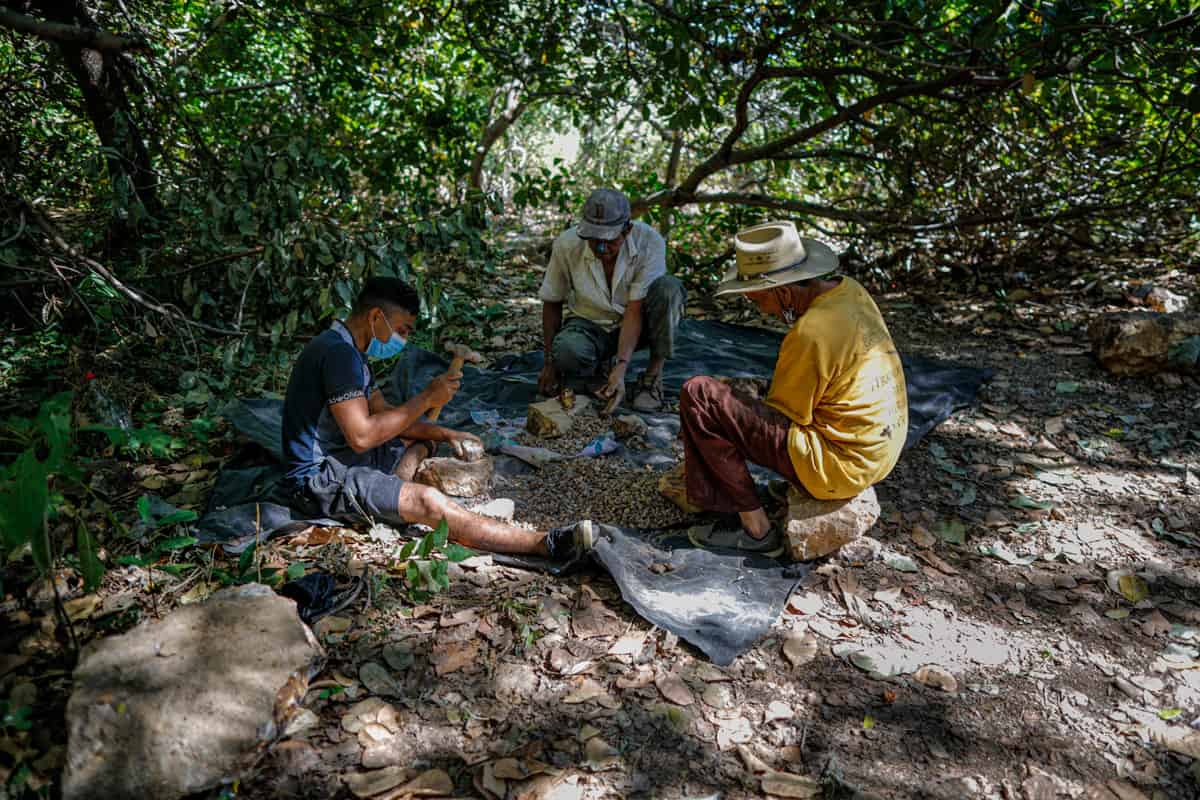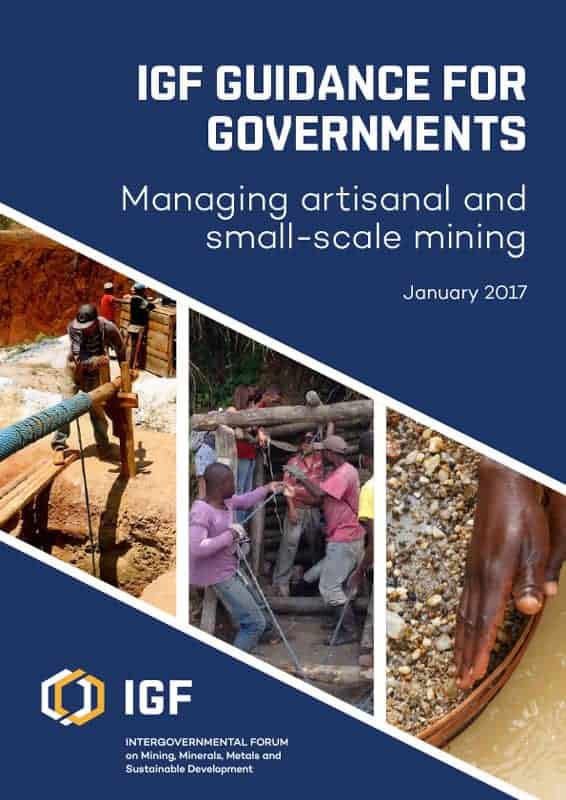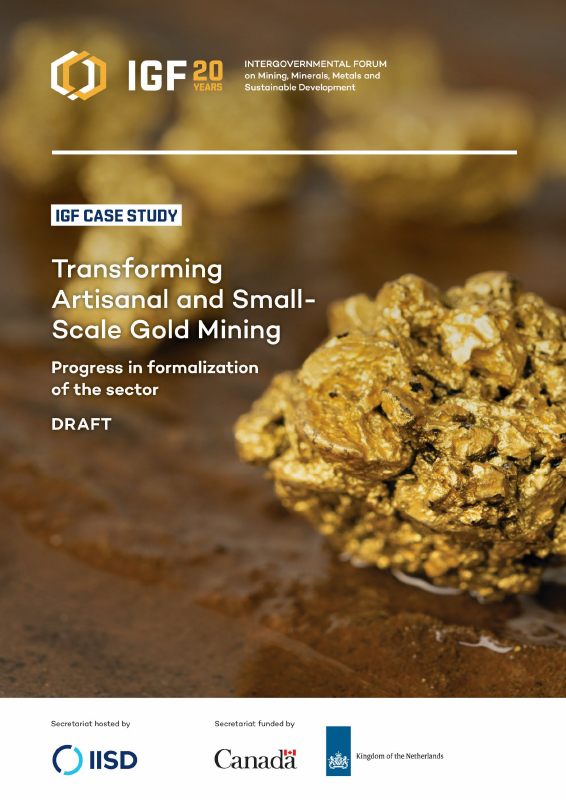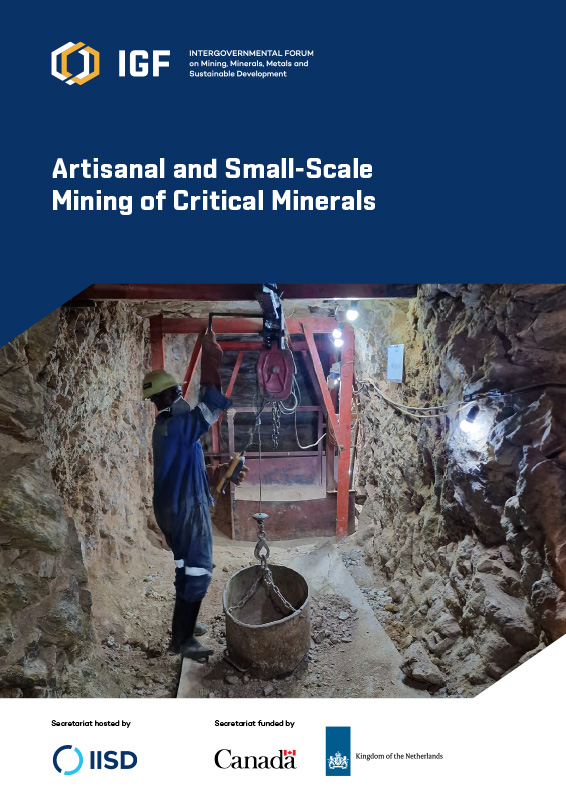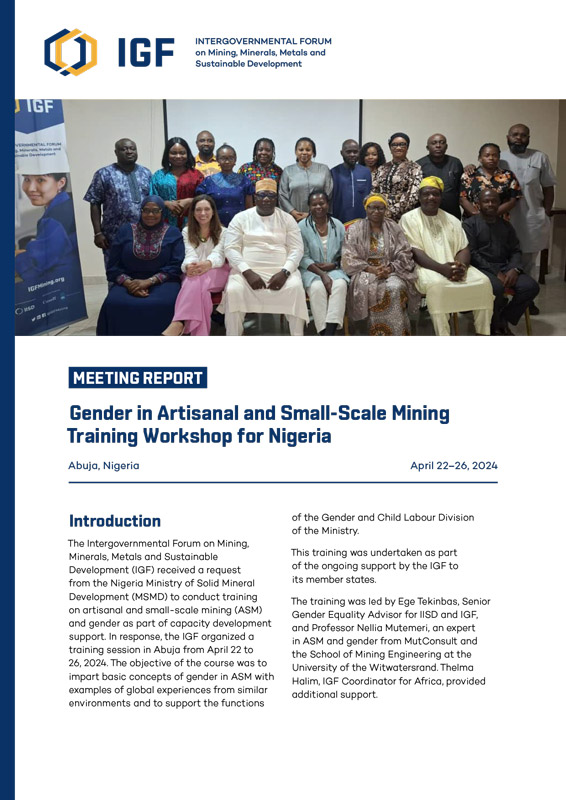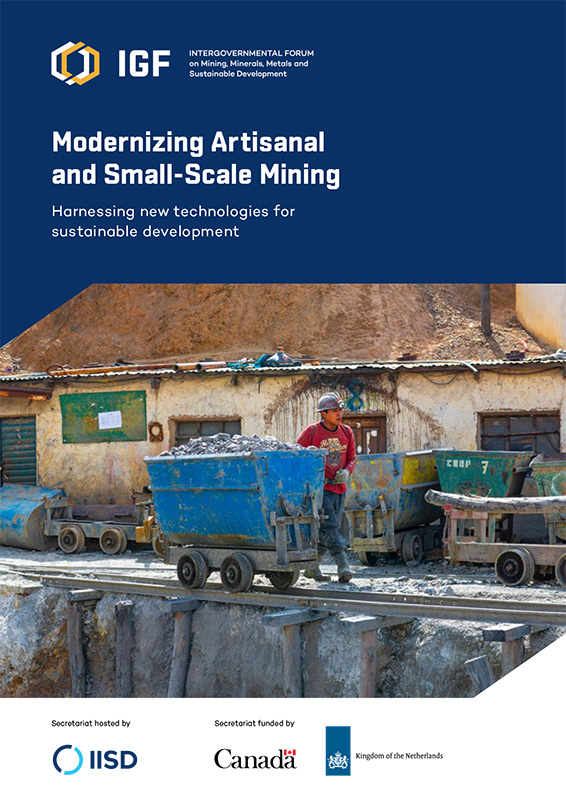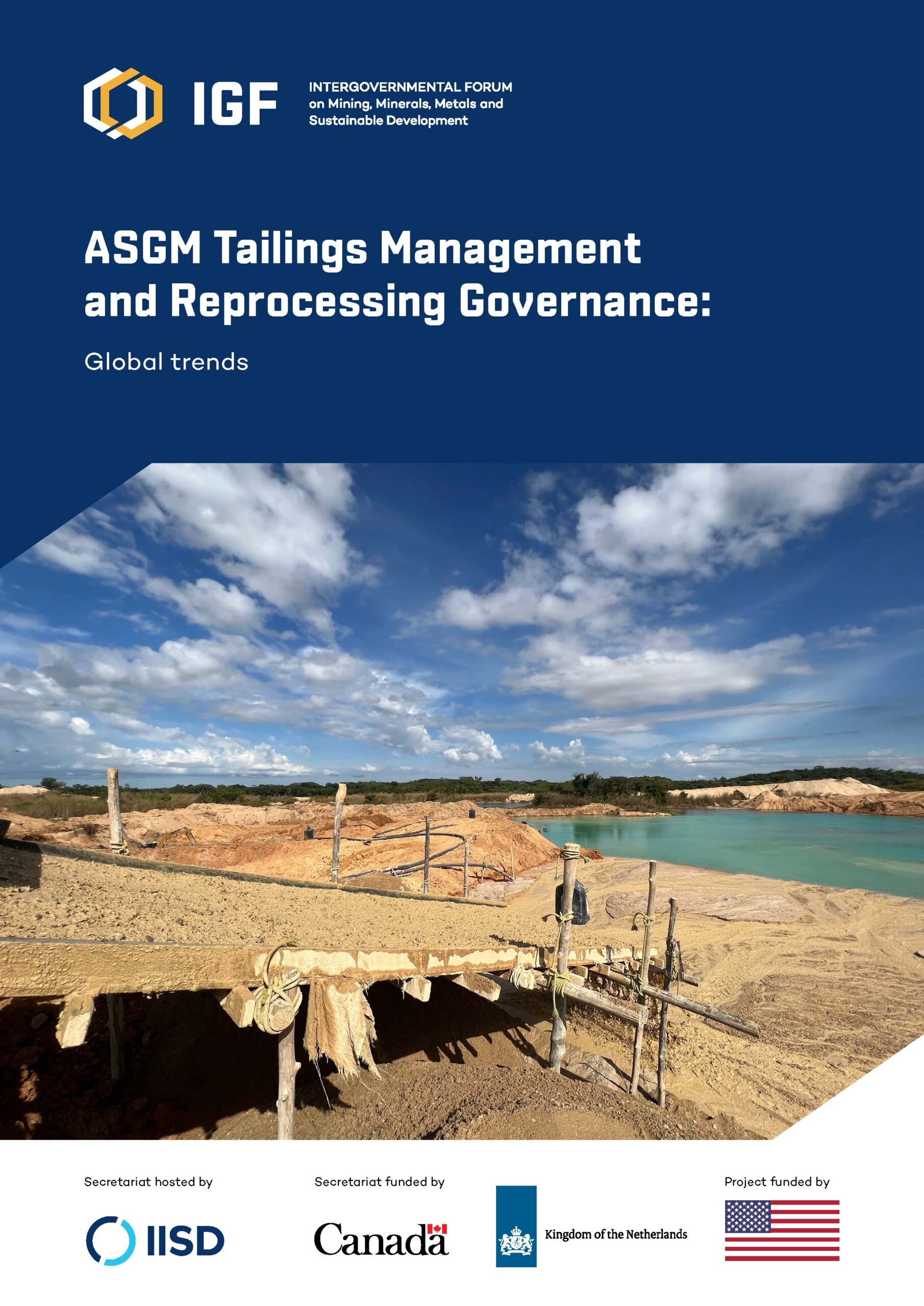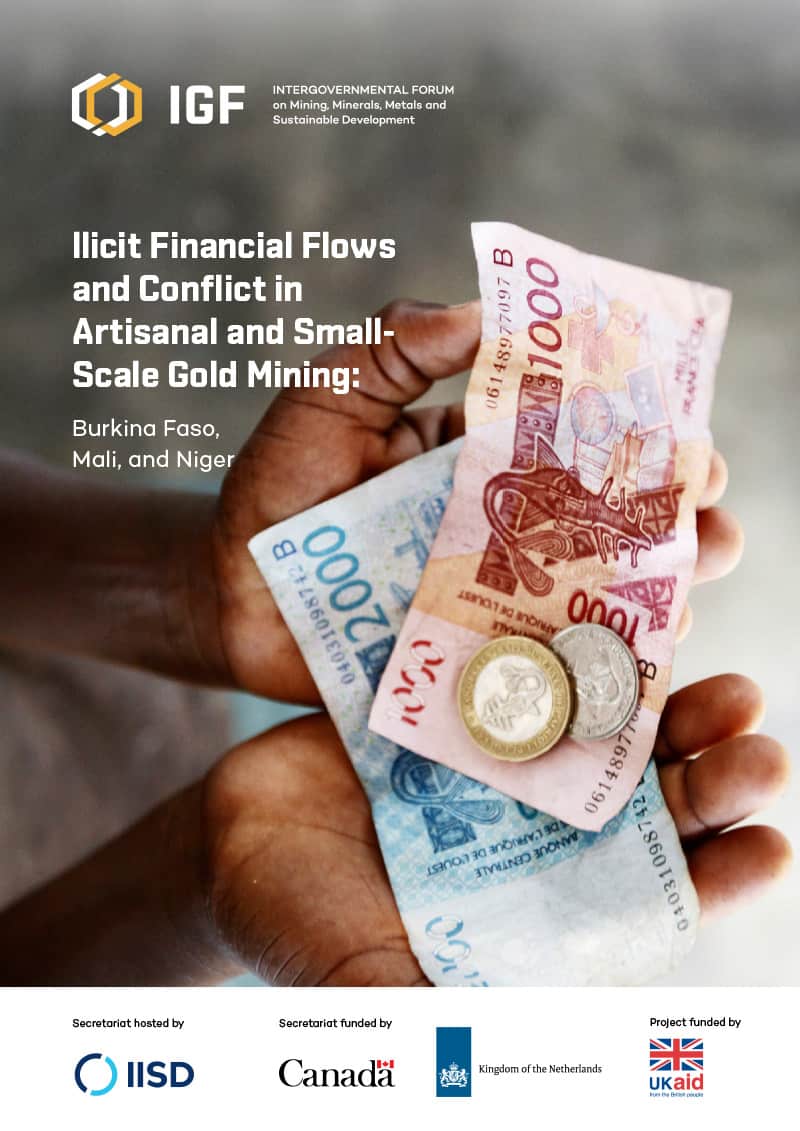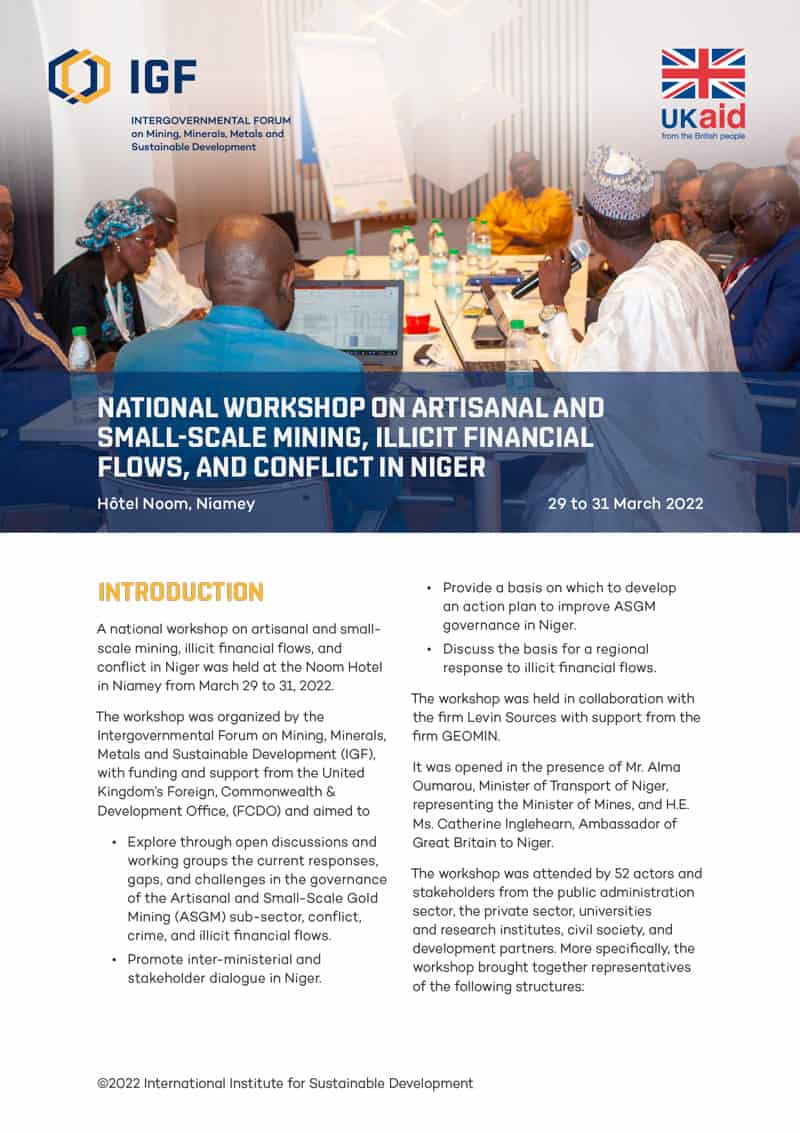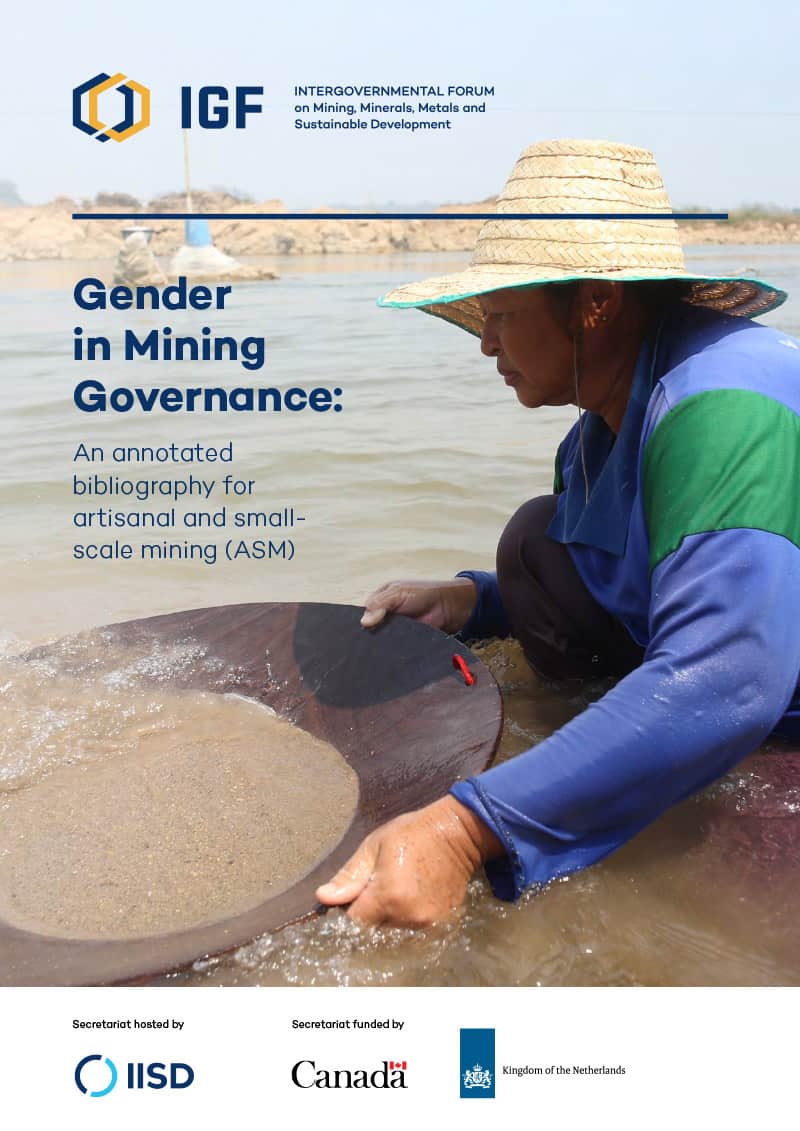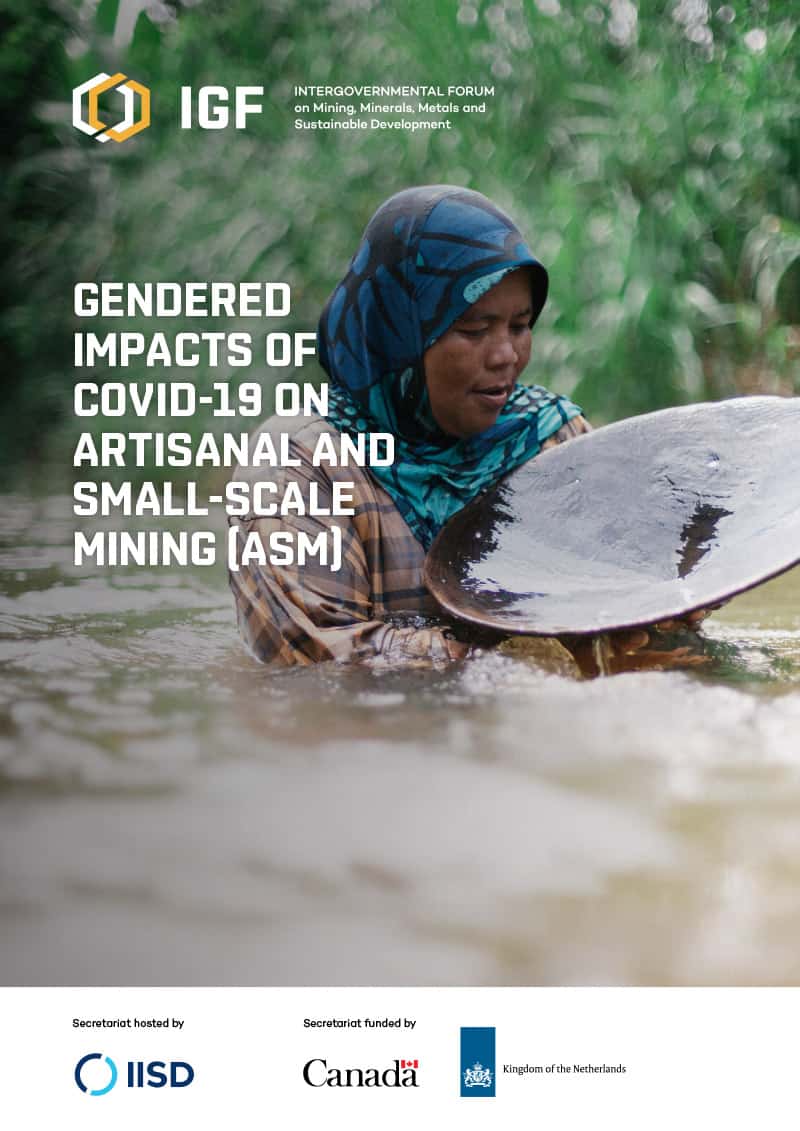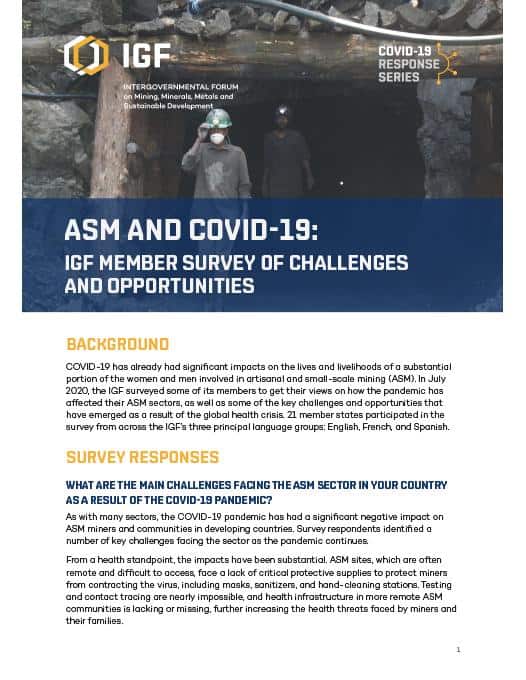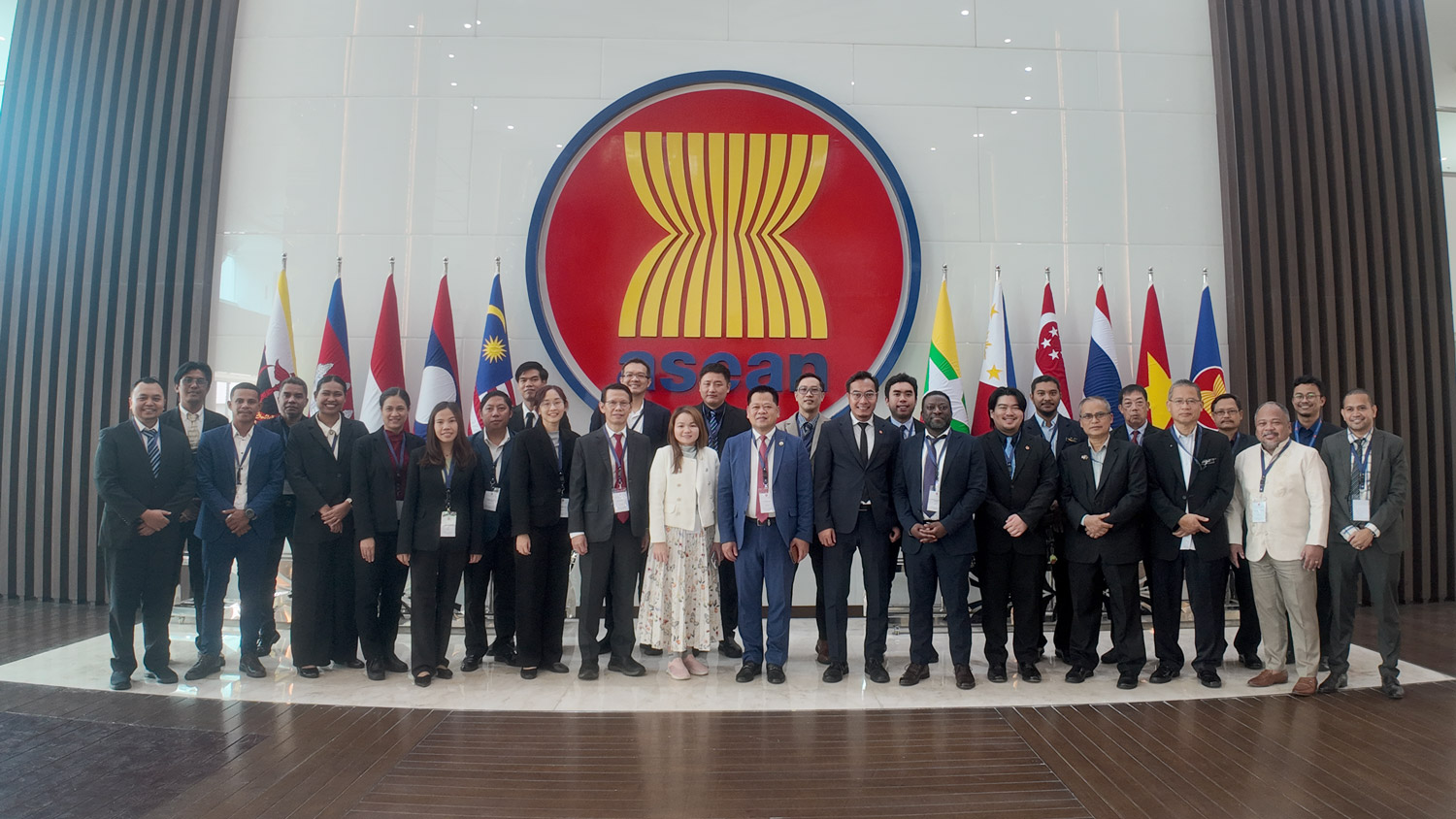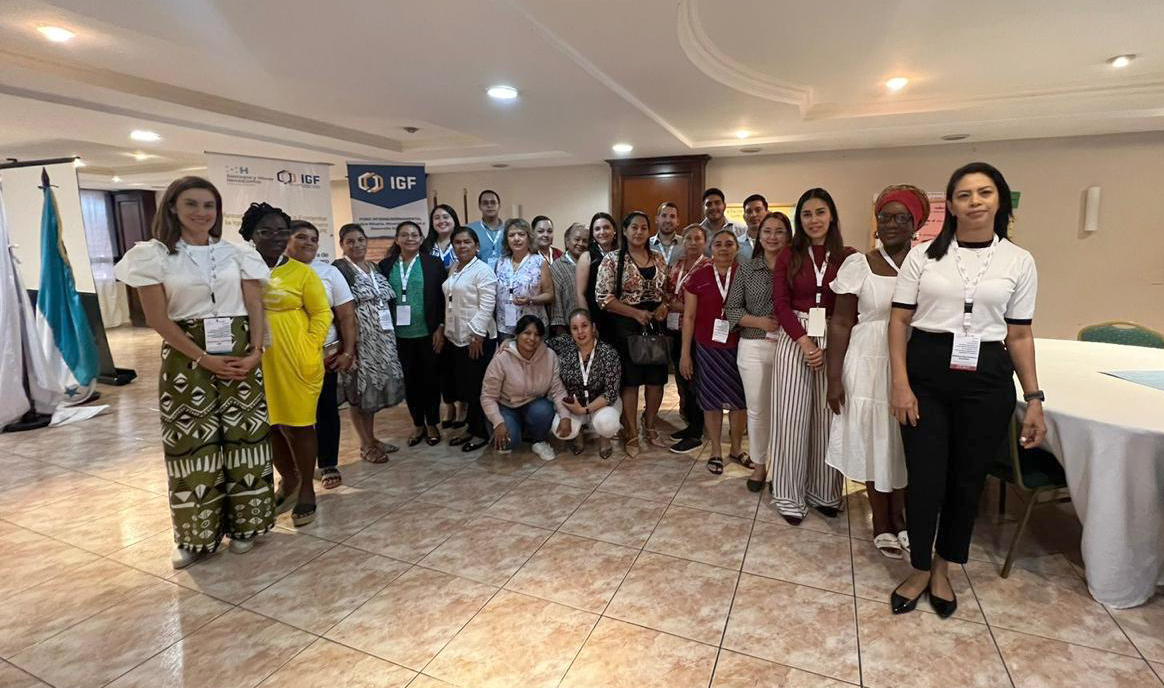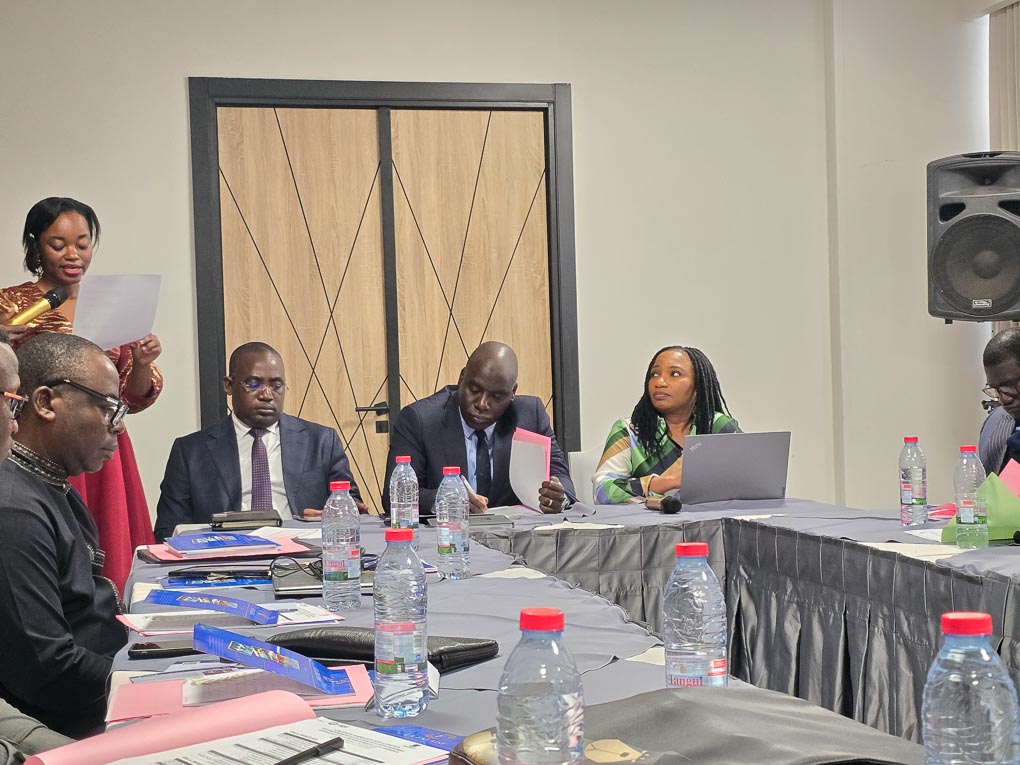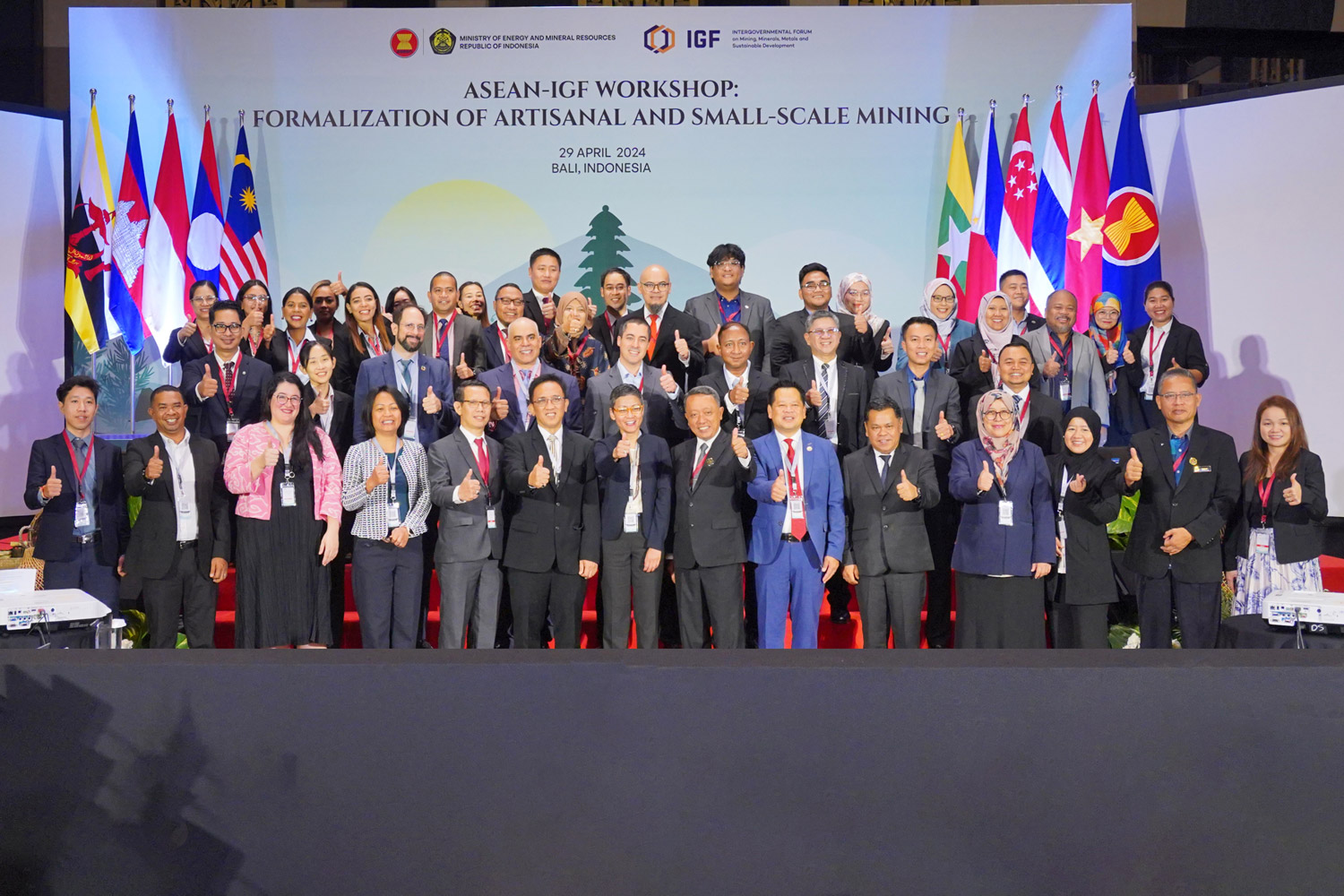Upholding Good Environmental Practices in Artisanal and Small-Scale Mining
Our efforts to mitigate damage to natural landscapes from ASM operations are informed by our flagship Mining Policy Framework.
We provide governments with capacity-building and technical assistance, events, and publications to develop and implement legal and policy tools to:
- Reduce deforestation and land degradation to contribute to better environmental management
- Safeguard community water resources for safe drinking water
- Prepare for how new mining technologies can support women in the sector
- Improve the management of toxic substances and eliminate them where possible to support the miners’ and community’s health.


